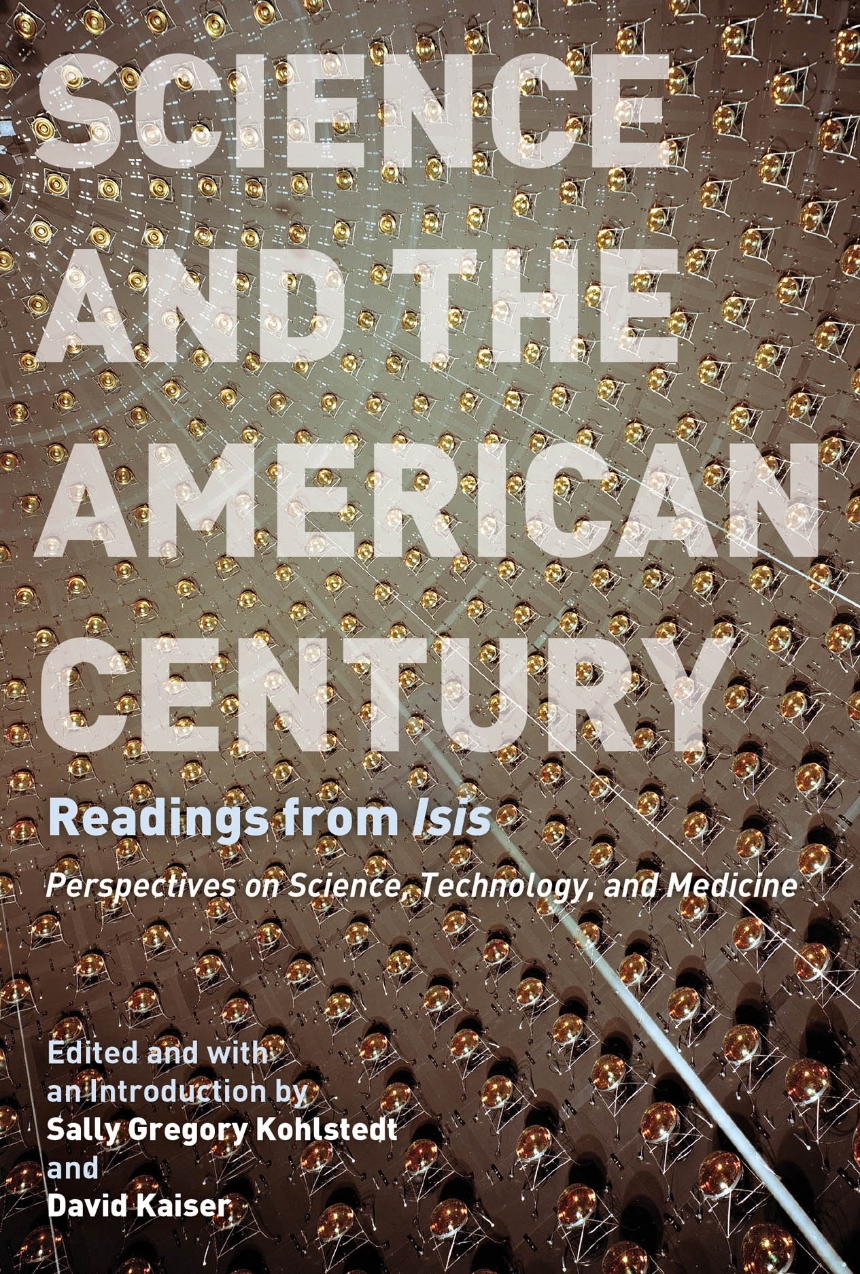Science and the American Century
Readings from "Isis"
The twentieth century was one of astonishing change in science, especially as pursued in the United States. Against a backdrop of dramatic political and economic shifts brought by world wars, intermittent depressions, sporadic and occasionally massive increases in funding, and expanding private patronage, this scientific work fundamentally reshaped everyday life. Science and the American Century offers some of the most significant contributions to the study of the history of science, technology, and medicine during the twentieth century, all drawn from the pages of the journal Isis.
Fourteen essays from leading scholars are grouped into three sections, each presented in roughly chronological order. The first section charts several ways in which our knowledge of nature was cultivated, revealing how scientific practitioners and the public alike grappled with definitions of the “natural” as they absorbed and refracted global information. The essays in the second section investigate the changing attitudes and fortunes of scientists during and after World War II. The final section documents the intricate ways that science, as it advanced, became intertwined with social policies and the law.
488 pages | 59 halftones, 10 line drawings | 6-3/4 x 10 | © 2013
History: American History
Language and Linguistics: Language and Law
Reviews
Table of Contents
Introduction
Sally Gregory Kohlstedt and David Kaiser
Sally Gregory Kohlstedt and David Kaiser
I. Nature, Science, and Environmental Perspectives
1. Local Knowledge, Environmental Politics, and the Founding of Ecology in the United States: Stephen Forbes and “The Lake as a Microcosm” (1887)
Daniel W. Schneider
2. The Beauty and Menace of the Japanese Cherry Trees: Conflicting Visions of American Ecological Independence
Philip J. Pauly
3. Fabricating Authenticity: Modeling a Whale at the American Museum of Natural History, 1906–1974
Michael Rossi
4. Nature’s Agents or Agents of Empire? Entomological Workers and Environmental Change during the Construction of the Panama Canal
Paul S. Sutter
5. The Fire Ant Wars: Nature and Science in the Pesticide Controversies of the Late Twentieth Century
Joshua Blu Buhs
II. Patrons, Politics, and the Physical Sciences
6. Patenting the Bomb: Nuclear Weapons, Intellectual Property, and Technological Control
Alex Wellerstein
7. Nuclear Democracy: Political Engagement, Pedagogical Reform, and Particle Physics in Postwar America
David Kaiser
8. Amateur Scientists, the International Geophysical Year, and the Ambitions of Fred Whipple
W. Patrick McCray
9. “Industrial Versailles”: Eero Saarinen’s Corporate Campuses for GM, IBM, and AT&T
Scott G. Knowles and Stuart W. Leslie
10. Rethinking Big Science: Modest, Mezzo, Grand Science and the Development of the Bevalac, 1971–1993
Catherine Westfall
III. Social Policies, Scientific Practice, and the Law
11. Families Made by Science: Arnold Gesell and the Technologies of Modern Child Adoption
Ellen Herman
12. Blind Law and Powerless Science: The American Jewish Congress, the NAACP, and the Scientific Case against Discrimination, 1945–1950
John P. Jackson, Jr.
13. Visions of a Cure: Visualization, Clinical Trials, and Controversies in Cardiac Therapeutics, 1968–1998
David S. Jones
14. Making Dollars Out of DNA: The First Major Patent in Biotechnology and the Commercialization of Molecular Biology, 1974–1980
Sally Smith Hughes
15. The Polonium Brief: A Hidden History of Cancer, Radiation, and the Tobacco Industry
Brianna Rego
Contributors
Index
